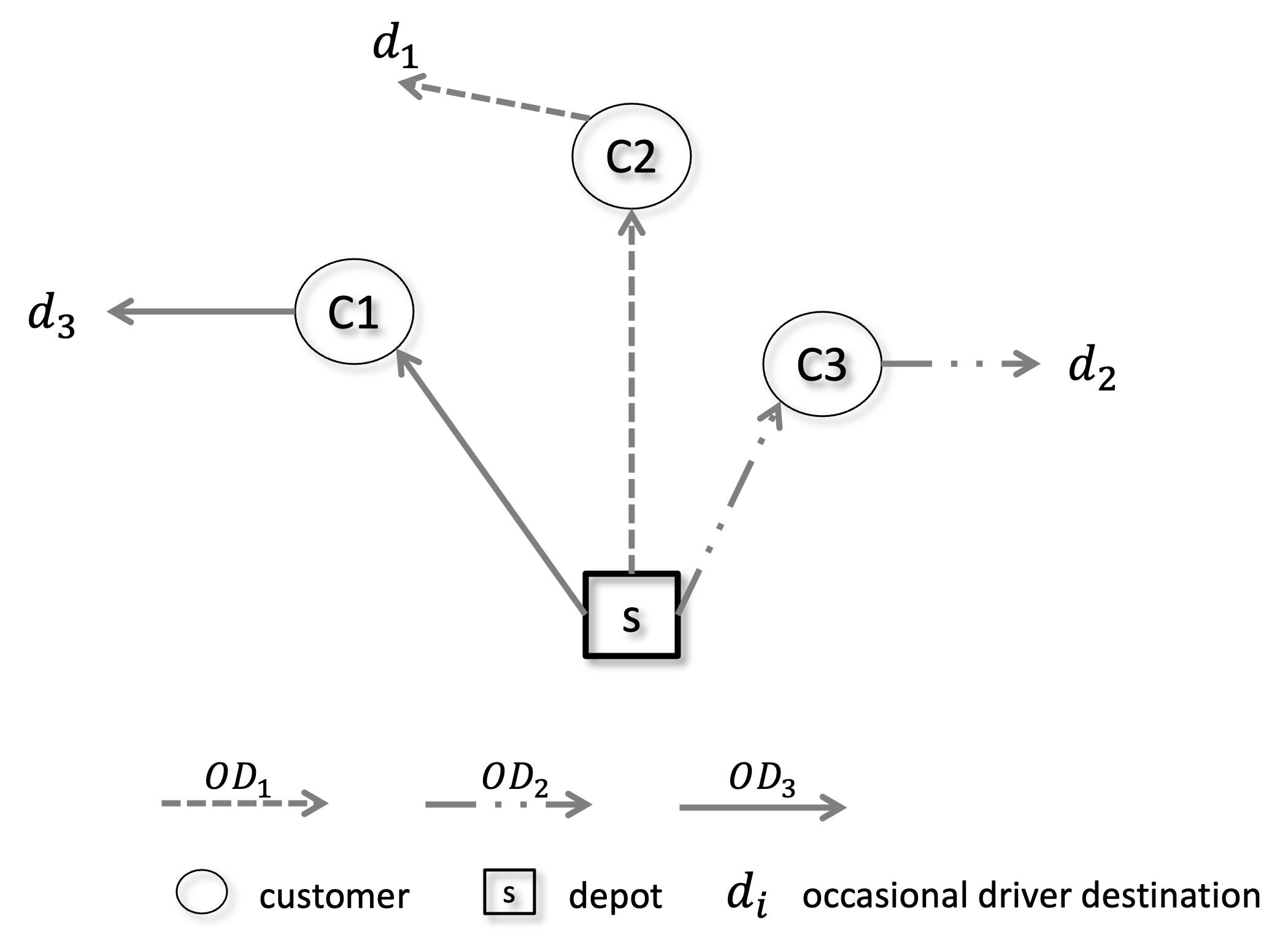A biased random-key genetic algorithm with variable mutants to solve a vehicle routing problem

0

Sign in to get full access
Overview
- Presents a Biased Random-Key Genetic Algorithm (BRKGA) approach to solve a Vehicle Routing Problem (VRP)
- Introduces a new mutation operator with variable mutants to enhance the algorithm's performance
- Evaluates the proposed approach on benchmark instances and compares it to other state-of-the-art methods
Plain English Explanation
The paper focuses on solving a complex logistics problem known as the Vehicle Routing Problem (VRP). VRP involves determining the optimal routes for a fleet of vehicles to deliver goods to a set of customers, while considering factors like distance, time, and capacity constraints.
To address this challenge, the researchers developed a Biased Random-Key Genetic Algorithm (BRKGA). BRKGA is a type of evolutionary algorithm that mimics the natural process of selection, crossover, and mutation to find optimal solutions.
The key innovation in this paper is the introduction of a new mutation operator with variable mutants. This means that the algorithm can introduce different types of changes to the candidate solutions (routes) during the optimization process, which can help it explore a wider range of possibilities and potentially find better solutions.
The researchers evaluated their approach on a set of standard benchmark instances for the VRP and compared the results to other state-of-the-art methods. The results suggest that the proposed BRKGA with variable mutants can outperform some existing techniques, highlighting its potential for real-world logistics and transportation applications.
Technical Explanation
The paper presents a Biased Random-Key Genetic Algorithm (BRKGA) to solve the Vehicle Routing Problem (VRP). The VRP is a well-known optimization problem in logistics and transportation, where the goal is to determine the optimal routes for a fleet of vehicles to deliver goods to a set of customers, while considering factors like distance, time, and capacity constraints.
The proposed BRKGA approach consists of the following key components:
- Chromosome Representation: The authors use a random-key representation, where each gene in the chromosome represents a customer and its associated vehicle.
- Biased Crossover: The crossover operator is designed to bias the offspring towards the better-performing parent solutions.
- Variable Mutation Operator: The authors introduce a new mutation operator that varies the number of mutants, which can help the algorithm explore a wider range of solution spaces.
- Decoding Procedure: The authors use a greedy heuristic to convert the chromosome representation into a feasible vehicle routing solution.
The researchers evaluate their approach on a set of standard benchmark instances for the VRP, including the VRPD-DT (Vehicle Routing Problem with Drones under Time-Window constraints) and the Heterogeneous Fleet Vehicle Routing Problem (HFVRP). The results show that the proposed BRKGA with variable mutants outperforms some existing state-of-the-art methods, such as Smartpathfinder, a hybrid genetic algorithm approach.
Critical Analysis
The paper presents a novel and promising approach to solving the Vehicle Routing Problem, but there are a few areas that could be further explored or addressed:
-
Sensitivity Analysis: The authors do not provide a detailed sensitivity analysis of the various parameters and operators used in the BRKGA, such as the mutation rate or the biased crossover. Understanding the impact of these parameters on the algorithm's performance could help researchers and practitioners fine-tune the approach for different problem instances.
-
Real-world Validation: While the algorithm is evaluated on standard benchmark instances, it would be valuable to see how it performs on more realistic, large-scale VRP instances that capture the complexities of real-world logistics and transportation networks.
-
Computational Complexity: The paper does not discuss the computational complexity of the proposed BRKGA approach, which is an important consideration for its practical adoption, especially for large-scale problems.
-
Comparison to Exact Methods: It would be interesting to compare the performance of the BRKGA to exact optimization methods, such as mixed-integer programming, to better understand the trade-offs between solution quality and computational efficiency.
Overall, the paper presents a valuable contribution to the field of vehicle routing optimization, and the proposed BRKGA with variable mutants shows promise as a effective heuristic approach. Further research and validation could help solidify its position as a state-of-the-art technique for solving complex logistics problems.
Conclusion
This paper introduces a novel Biased Random-Key Genetic Algorithm (BRKGA) with a variable mutation operator to solve the Vehicle Routing Problem (VRP). The key innovation is the inclusion of a mutation operator that can introduce different types of changes to the candidate solutions, which can help the algorithm explore a wider range of possibilities and potentially find better solutions.
The researchers evaluated their approach on standard benchmark instances and found that it can outperform some existing state-of-the-art methods, highlighting its potential for real-world logistics and transportation applications. While the paper presents a promising contribution, further research is needed to address areas like parameter sensitivity, real-world validation, and computational complexity analysis to fully assess the merits of the proposed BRKGA approach.
This summary was produced with help from an AI and may contain inaccuracies - check out the links to read the original source documents!